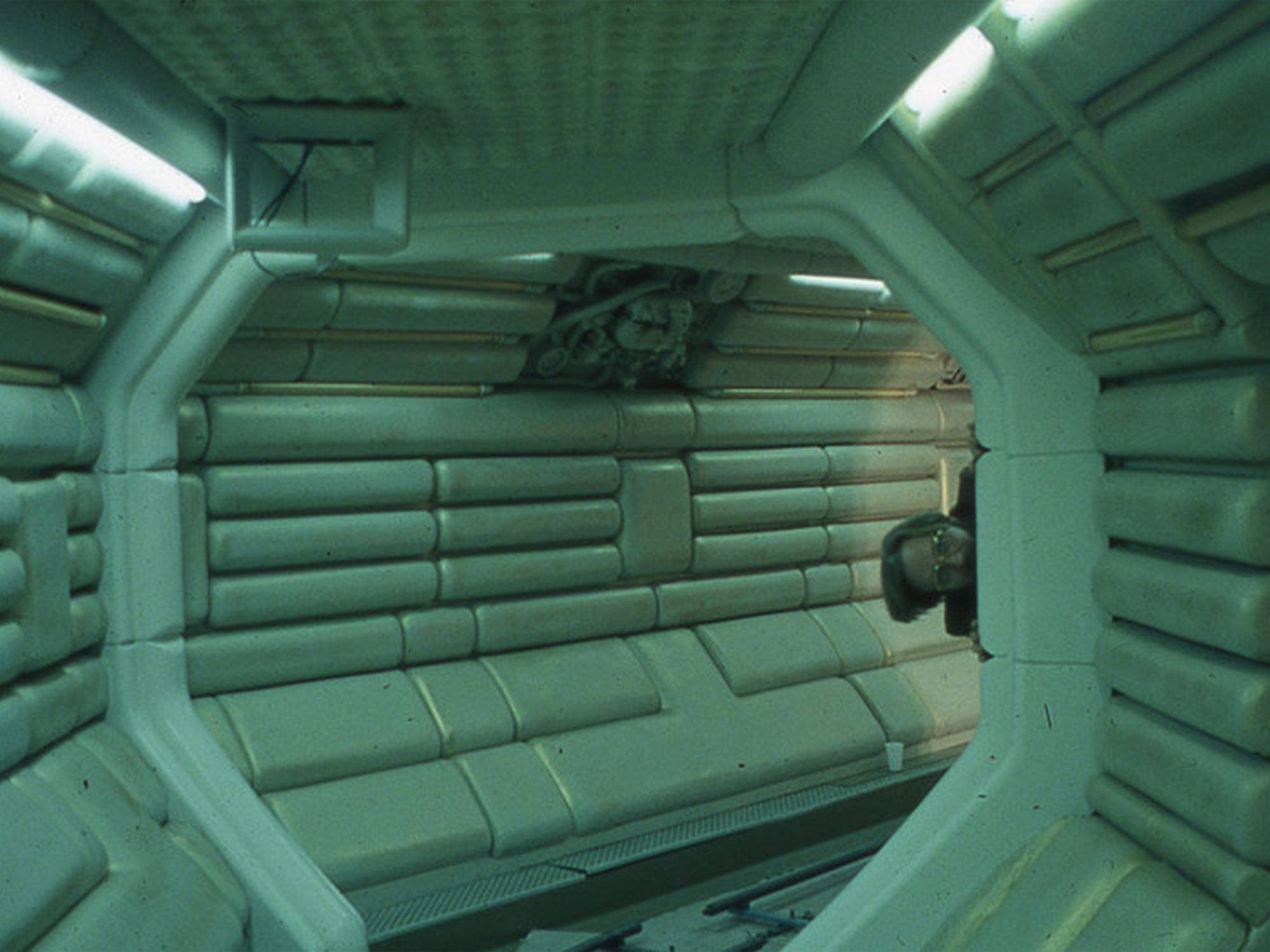
Not every documentary on a sci-fi horror hybrid made in 1979 opens with a modern staging of Aeschylus’ play ‘Eumenides’ on the numinous open-air ‘theatre’ of ancient Delphi. But then Alexandre O Philippe’s Memory: The Origins of Alien is engaged, as its title suggests, in a search for sources.
One might quibble over just how much the aggressively adaptable xenomorph from Ridley Scott’s Alien really was influenced by the (similarly relentless, but otherwise very different) Furies of classical mythology, but the point is well taken that what made Alien chime so perfectly with the anxieties of its own time, and what makes it still resonate today, is something deep-seated in the popular unconscious – a long dormant set of mental associations, cultural memories, genetic programmings and collective traumas just waiting for the right moment to hatch.
From Earthlings: Ugly Bags of Mostly Water to The People vs George Lucas to Doc of the Dead to 78/52: Hitchcock’s Show Scene, Philippe has made a career of exploring our social psyche through the prism of carefully selected television shows or films that somehow tap deep into the well of popular culture. In his previous documentary 78/52, he worked painstakingly outward from a single if often imitated sequence in Psycho to gauge the shifting of late-’50s American mores, of genre’s boundaries, of filmmaking techniques, of attitudes towards sex and gender.
Though not quite as tightly focused on just the one sequence, Memory: The Origins of Alien does keep circling back to the notorious breakfast scene in Scott’s film, wherein John Hurt’s Kane, seemingly recovered from a close encounter with a face-hugging alien and enjoying a meal with the rest of the spaceship’s crew, gives sudden, violent, bloody birth to another form of alien which bursts through his chest.
Philippe has chosen this sequence not just because of its game-changing nature, its iconic status, and its great influence on subsequent art, but also because the scene encapsulates the documentary’s principal preoccupation: the messy miracle of birth. For, singularly obsessed with the genesis of ideas, Philippe goes back not only to the lives and personalities of the creative team (chiefly Scott, screenwriter Dan O’Bannon and creature designer HR Giger) responsible for delivering this psychosexual space spectacle, but also to what inspired their vision.
This includes an evolving miscegeny of ‘a global set of myths’, Francis Bacon’s 1944 triptych of paintings ‘Three Studies for Figures at the Base of a Crucifix’, sci-fi and monster movies from the ’50s and ’60s, EC Comics, HP Lovecraft, Joseph Conrad, David Cronenberg’s body horror, Robert Altman’s innovations in naturalistic dialogue, Alejandro Jodorowsky’s unmade Dune, the parasitism of wasps, and O’Bannon’s own intestinal illness.
A swarm of talking heads – filmmakers, actors, academics and critics – provide infectious context and insight, talking us through how the seed of an idea can, in the right hands, awaken and take form and change and develop into something that penetrates the human mind, in turn engendering other ideas. Ultimately, we no more understand the alchemical magic that gave rise to Alien than we know where the xenomorph in the film came from (Scott would return to this elusive question of origins in the post-millennial prequels Prometheus and Alien: Covenant).
But what Philippe’s documentary traces is the way in which Alien transforms the perverted (pro)creative process at the heart of its own making into the main theme and central mystery of its ongoing story.
The post Memory: The Origins of Alien appeared first on Little White Lies.
![Forest Essentials [CPV] WW](https://s3-us-west-2.amazonaws.com/pcw-uploads/logos/forest-essentials-promo-codes-coupons.png)
0 comments